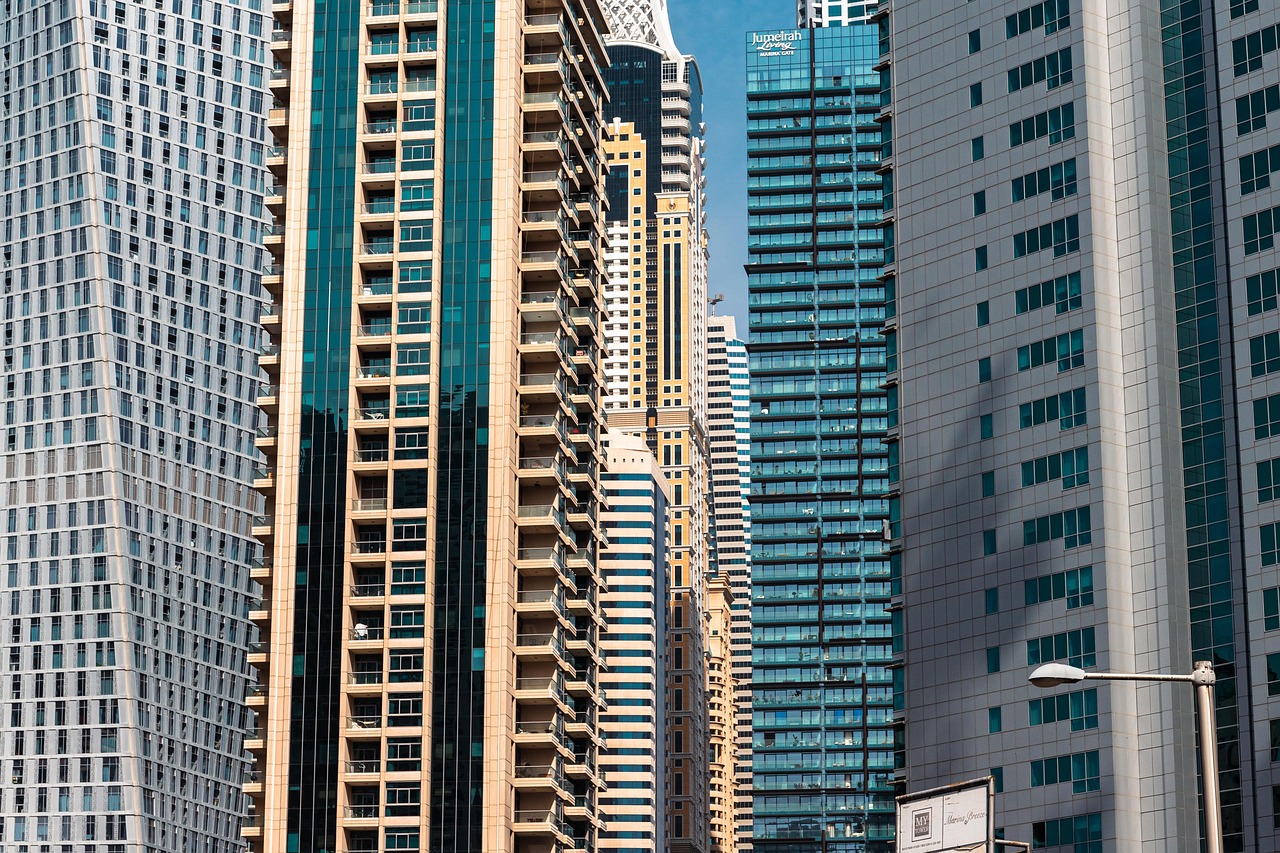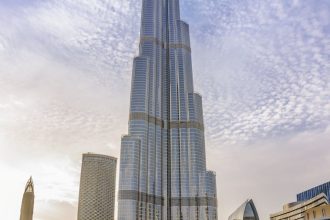Dubai’s Free Zones: Cornerstones of Small‑Business Momentum
Dubai’s Free Zones are often hailed as the launchpads for entrepreneurs, with their blend of zero taxation, 100 % foreign ownership, and rapid licensing procedures. In the UAE’s hyper‑competitive business environment, these dedicated economic zones have become the preferred ecosystems for startups and small enterprises seeking agility and global reach. By combining streamlined regulatory frameworks, superior infrastructure, and targeted support programs, Dubai’s Free Zones have demonstrably accelerated the growth of dozens of nascent companies across technology, logistics, media, and health sectors. In what follows, we explore how these zones serve as catalysts for small‑business proliferation, drawing on data from the Dubai Department of Economic Development (DED), the Dubai Chamber, and globally recognized institutions such as the International Monetary Fund and the World Bank.
—
Dubai’s Free Zones and Their Role in Small Business Growth
Dubai’s free zones offer distinctive advantages that create a fertile ground for small businesses to thrive:
– Tax incentives – Corporate and personal income taxes are exempt for 15–20 years; recent changes will extend zero corporate tax until 2025, making them highly attractive for profit‑maximising entities.
– Full ownership – Small businesses can hold 100 % ownership, avoiding the need for local partners.
– Capex and operational flexibility – Many zones provide free‑standing warehouses, office suites, and colocated data centres, streamlining startup costs.
– Simplified licensing – A single‑window portal reduces paperwork to a few days, with most licensing options available online.
– Repatriation of profits – Funds can be freely transferred overseas without restrictions or additional tax.
– Access to talent and networks – Shared services hubs, incubators, and frequent industry networking events strengthen the startup ecosystem.
Dubai’s Free Zones like the Dubai Multi Commodities Centre (DMCC), Dubai Silicon Oasis (DSO), Dubai Internet City (DIC), Dubai Media City (DMC), and Dubai Healthcare City (DHCC) collectively host over 35,000 active companies as of 2024, a figure that includes more than 4,500 startups registered within the last fiscal year. This density creates a vibrant supply‑side environment where small businesses can tap into a ready‑made market of suppliers, customers, and service providers.
—
Regulatory Evolution: Law No. 17 of 2022 and 2024 Amendments
In 2022, the UAE federal government enacted Law No. 17, which modernised the legal framework for free zones by standardising licensing types and reducing licensing durations to a minimum of ten years for commercial activities. Key changes include:
– Unified licensing categories across all free zones, easing cross‑zone migration.
– Transparent fee structures, with cap on annual license renewal expenses.
– Increased funding avenues – Free zones now qualify for cross‑sector Dubai SME Initiative grants.
The 2024 amendment expanded allowances for mixed‑ownership ventures, permitting a small domestic partner if the foreign‑owned enterprise seeks to scale within the mainland market. These legislative adjustments have propelled a 12 % increase in cross‑border e‑commerce registrations from 2022 to 2023, according to DED data.
—
Economic Impact: Statistics That Matter
| Metric | 2022 | 2023 | 2024 (Forecast) |
|——–|——|——|—————–|
| Number of Free‑Zone Companies | 32,000 | 34,500 | 36,000 |
| Registered Startups | 3,200 | 4,500 | 5,200 |
| Employment Created | 112,000 | 118,000 | 123,500 |
| Foreign Direct Investment (FDI) | AED 12bn | AED 13.8bn| AED 15bn |
Source: DED Annual Report 2024, Dubai Chamber statistics
The uptick in foreign direct investment—especially in technology and logistics—signals the trust that global investors place in Dubai’s free‑zone structures. Notably, e‑commerce and fintech startups reported an average time to market reduction of 30 % when operating from a free zone compared to mainland offices.
—
The Small‑Business Journey: From Conception to Scaling
Below is a typical pathway followed by a nascent company eager to benefit from a free‑zone setup:
1. Business Idea & Market Research
– Conduct due‑diligence using Dubai Chamber’s “Business Insights” portal.
– Identify target free zones aligning with sector priorities.
2. Legal Entity Formation
– Register under a Free‑Zone Company (FZC) or Free‑Zone Establishment (FZE).
– Secure trade name approval through the free‑zone authority.
3. License Acquisition
– Choose a commercial or service license based on industry.
– Submit application via the free‑zone’s online portal; most licenses are issued within 3–5 business days.
4. Office & Infrastructure Setup
– Lease a flex‑space or a co‑located office.
– Order IT equipment and dedicated phone lines, some of which can be purchased through the free‑zone’s supplier network at preferential rates.
5. Capital and Funds Repatriation
– Open a bank account with a free‑zone‑approved bank (e.g., Emirates NBD, ABN AMRO).
– Repay capital investments foreign‑direct income tax free.
6. Growth & Expansion
– Utilize the Dubai SME Initiative grants (up to AED 100,000) for R&D, hiring, or marketing.
– Seek Dubai Investment Fund participation for Series‑A funding rounds.
– Locate a mainland business partner if scaling into the UAE mainland market is desired.
—
Success Stories: Free‑Zone Innovators Flourishing
– AgriTech Start‑up “FarmViz” – Registered in Dubai Silicon Oasis, FarmViz uses drone imagery to track crop health. Within two years, it secured a US$3.5 million investment from a German venture fund and captured 15 % of the UAE agri‑tech market. The 100 % ownership model enabled rapid joint‑venture negotiations with multinational agri‑corp firms.
– Digital Health Provider “MediLink” – Operating as a Medical FZC in Dubai Healthcare City, MediLink offers virtual consultation services to expatriates in the GCC. The company leveraged DHCC’s support partnership with Eurpean EHR standards and gained a pipeline of public‑sector contracts worth more than AED 500 million in 2023.
– Supply‑Chain Platform “TrackRoute” – Initiated in Dubai Multi Commodities Centre (DMCC), TrackRoute provides blockchain‑based logistics tracking. DMCC’s Innovation Hub funded a prototype sprint and subsequently earned an Industry Innovation Award presented by the UAE Minister of Economy.
These case studies illustrate not just the tempo of growth enabled by free‑zone advantages, but also an ecosystem that encourages cross‑border collaboration and attracts institutional funding.
—
Comparative Advantage: Free Zones vs. Mainland Licensing
| Feature | Free‑Zone Company | Mainland Company |
|———|——————-|——————|
| Foreign ownership | 100 % | 49 % (requires Emirati sponsor) |
| Corporate tax | 0 % until 2025 | 55 % for profits beyond AED 375,000 |
| Licensing health | 3–5 days | 15–20 days |
| Setup cost | AED 30,000–50,000 | AED 40,000–70,000 |
| Repatriation of dividends | Full | 95 % (minus withholding tax) |
| Business scope | Restricted to the free zone | Unlimited across UAE |
Source: Dubai Chamber, “Starting Business in the UAE”, 2024 edition.
The simplicity of a free‑zone setup often outweighs the perceived prestige of a mainland office for micro and small‑scale entrants looking to test-market new products or secure early funding.
—
Government Incentives Supporting Small Businesses
Dubai’s focus on fostering a diversified economy extends beyond free‑zone benefits:
– Dubai SME Initiative – Grants of up to AED 100,000 for operational, marketing, or technology projects, especially in R&D‑intensive sectors.
– Dubai Investment Fund (DIF) – Dedicated capital of AED 10 billion for early‑stage tech ventures, prioritising those within free zones due to their compliance records.
– UAE Ministry of Economy (MoE) “Digital Economy 2025” plan – Calls for a 50 % increase in digital startups, with free‑zone hubs earmarked as key accelerators.
– Dubai Future Accelerators (DFA) – Public‑private partnerships that afford startups testing phases in government-linked public service platforms, often based in free‑zone incubators.
Such initiatives provide both financial buff and operational leverage for small businesses to gain traction before scaling across the country.
—
Challenges and Mitigation Strategies
While free zones are a powerful engine for growth, potential pitfalls remain:
– Supply‑chain constraints – Free‑zone companies sometimes face regulatory barriers when sourcing goods that must transit mainland customs.
– Mitigation: Collaborate with local compliance firms to secure customs clearance corridors.
– Limited customer proximity – Operating solely within a free zone can disconnect a startup from the broader UAE market.
– Mitigation: Apply for a mainland branch license under the Mainland for Free‑Zone Operators program, which allows unilateral expansion.
– Renewal complications – Free‑zone license renewal fees can rise with inflation.
– Mitigation: Lock in rate-hold packages when available or negotiate renewal contracts less than 30 days prior to expiry.
Despite these hurdles, the vast majority of small businesses within Dubai’s free zones report net growth, citing infrastructure excellence and administrative support as the primary drivers.
—
Future Outlook: Emerging Free‑Zone Opportunities
Dubai is poised to launch several new free‑zone concepts that will further embed innovation:
– Dubai Artificial Intelligence (AI) Free Zone – A joint venture with UN Global Pulse, aimed at AI‑centric enterprises seeking high‑speed connectivity and regulatory partnership.
– Dubai Cloud Computing Zone – Partnership with Microsoft and Amazon Web Services, providing scalable data‑centre access and a ready‑made talent pool.
– Dubai Esports & Gaming Zone – Designed to bring together developers, streamers, and event organisers to fuel regional growth in digital entertainment.
These initiatives are expected to moderate the competitive edge of free‑zones, adding layers of vertical specialization tailored to the UAE’s strategic economic interests.
—
Conclusion
Dubai’s Free Zones are more than just licensing enclaves; they are holistic ecosystems designed to accelerate small‑business development. Combining zero taxation, full foreign ownership, rapid licensing, and dedicated incubation support, these zones lower entry barriers while providing robust pathways to scale. The UAE government’s sustained investment in supporting policies—through grants, innovative funding mechanisms, and a forward‑looking legislative framework—has cemented free zones as the cornerstone of Dubai’s ambition to diversify beyond oil and cement.
As the city pushes for a more technology‑centric and globally integrated economy, free‑zone facilities will continue to attract startups from across the globe, reshaping the small‑business landscape in the UAE. Whether you are an entrepreneur eyeing a first office or an established SME looking to tap new markets, Dubai’s free‑zone registry remains a pivotal decision point for sustainable growth and international reach.
—









